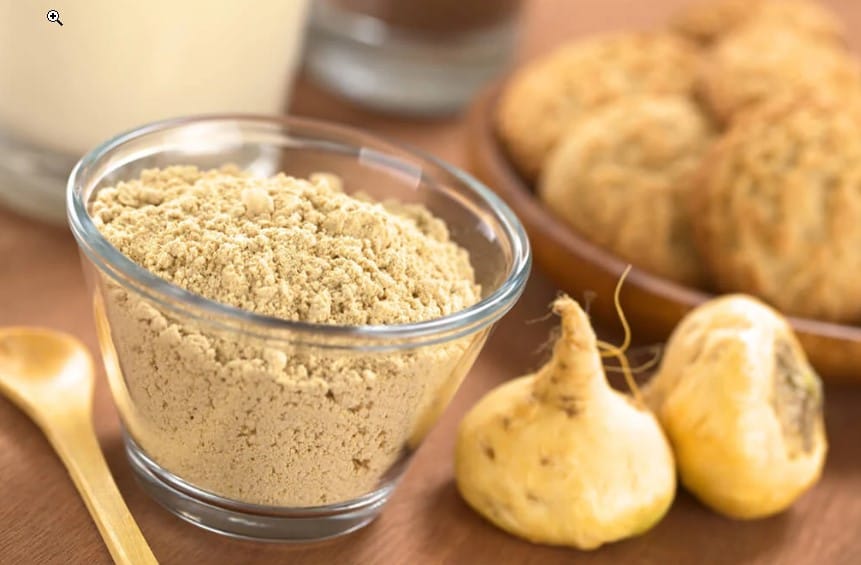Key Takeaways:
- Potential Side Effects: While maca is generally considered safe, it can cause side effects such as altered menstrual cycles and hormone-sensitive conditions.
- Benefits vs. Risks: Maca offers numerous health benefits, but it's important to weigh these against possible adverse effects, especially in specific populations.
- Consultation is Key: Always consult with a healthcare professional before starting any new supplement, including maca, to avoid unwanted interactions and side effects.
Maca, a root vegetable native to Peru, also known as Peruvian ginseng, has been used for centuries for its potential health benefits. Marketed in various forms such as maca powder, capsules, and extracts, it is popular among those seeking to enhance fertility, boost energy levels, and improve sexual function. However, as with any supplement, it is crucial to understand not only the benefits of maca but also the potential maca supplement side effects.
What is Maca?

Maca (Lepidium meyenii) is traditionally grown in the Andes Mountains of Peru and has been both consumed as a food item and used medicinally. The plant is adapted to harsh climates and poor agricultural soils. Maca root powder is the most common form of this supplement, often added to smoothies, desserts, and other recipes.
Historical and Cultural Significance
In traditional Peruvian medicine, maca has been used to treat a range of conditions from anemia to tuberculosis. Today, its adoption in Western wellness circles has expanded, largely due to its reputation as a natural enhancer of sexual health and fertility.
Hormonal Effects
One of the most discussed aspects of maca's impact is its influence on hormone levels. Despite its reputation for balancing hormones, limited evidence suggests definitive effects. However, some studies in adult human subjects have shown promising results regarding maca's capability to improve sexual desire and reduce menopausal symptoms.
Impact on Sexual Health
Research indicates that maca may improve seminal quality and sperm concentration, which can enhance fertility, particularly in male fertility. Additionally, studies have shown that maca can help alleviate antidepressant-induced sexual dysfunction, making it a potential adjunct treatment for those experiencing these specific side effects.
Maca and Menopausal Symptoms
Many women turn to maca to relieve menopausal symptoms such as hot flashes and night sweats. Although research is ongoing, early results from placebo-controlled clinical trials suggest that maca might be effective in improving these conditions without the hormone level fluctuations associated with traditional hormone replacement therapy.
Digestive Health Concerns

While generally safe for consumption, maca can cause gastrointestinal discomfort in some individuals. Symptoms such as bloating, indigestion, and diarrhea may occur, particularly when consumed in large amounts.
Potential Benefits of Maca on Sexual Dysfunction
Maca, scientifically known as Lepidium meyenii, has been studied for its potential benefits in addressing various forms of sexual dysfunction, including antidepressant-induced sexual dysfunction and erectile dysfunction. Researchers have explored how taking maca root may influence these conditions. A systematic review of randomized controlled trials suggests that maca extracts can improve sexual performance, particularly in patients experiencing antidepressant-induced issues. These findings highlight maca's role as a natural alternative that could support individuals struggling with these specific sexual health challenges.
Animal studies and human research further support the use of maca in enhancing sexual health. For instance, studies focusing on erectile dysfunction have noted improvements in erectile function with the oral administration of maca. Additionally, peer-reviewed studies on semen quality in men have observed that both black or red maca can improve semen concentration, potentially aiding in fertility issues. These insights are crucial as they provide a scientific basis for the traditional use of Peruvian maca in improving sexual function, offering hope and alternative solutions to those affected by sexual health problems.
Maca and Antidepressant Induced Sexual Dysfunction
Recent peer-reviewed studies have begun to explore the potential of maca extract in mitigating antidepressant-induced sexual dysfunction, a common side effect faced by many individuals on these medications. Researchers have noted that compounds in maca, particularly in its red or black forms, may help in restoring sexual function without altering the medication's intended effects on mood. This is particularly significant as sexual dysfunction can severely impact life quality and medication adherence.
A placebo-controlled clinical trial focusing on this application could provide more definitive answers. Currently, the evidence is promising but not conclusive. Health professionals often hesitate to recommend maca for this purpose until more robust data is available. However, anecdotal evidence and preliminary studies suggest that maca could be a natural alternative worth considering under guided supervision.
Lepidium Meyenii Maca: Insights from Peer-Reviewed Studies
Lepidium meyenii, commonly known as maca, has been the subject of numerous peer-reviewed studies aiming to validate its health claims. Researchers have focused on various aspects, from its impact on sexual health to its potential in improving mood and energy levels. For instance, a placebo-controlled clinical trial highlighted maca's ability to enhance libido without altering testosterone levels, which is crucial for individuals with hormone-sensitive conditions. These studies are essential as they provide a scientific basis for the traditional uses of maca, ensuring that its benefits are not just anecdotal.
Further exploration into maca's biochemical properties reveals its role in mitigating mitochondria-mediated muscle damage. This particular finding is significant for athletes or individuals engaged in heavy physical activities, as it suggests that maca could potentially enhance muscle recovery. The studies, often conducted in controlled environments, aim to isolate the effects of maca from other variables, ensuring that the results are reliable. However, researchers often caution that more extensive studies are needed to draw firm conclusions, reflecting the ongoing nature of scientific inquiry into this traditional herb.
Herb-Drug Interactions and Maca: A Critical Overview
When considering the integration of maca into a daily regimen, particularly for those on medication, understanding potential herb-drug interactions is crucial. Maca contains compounds that might interact with common medications, potentially altering their efficacy. For instance, its effects on the endocrine system could interfere with hormone therapies or treatments for hormone-sensitive conditions. It is always advisable for individuals to consult healthcare providers before starting any new supplement, especially when dealing with chronic illnesses or ongoing medication treatments.
The complexity of herb-drug interactions is a growing field of study, and preliminary animal research and some clinical trials have begun to shed light on how maca might interact with other drugs. For example, studies like those conducted by Shin BC and colleagues on ginseng andin, a compound similar to those found in maca, provide insights into how these interactions might occur. Although these studies are in their early stages, they underscore the importance of cautious integration of supplements like maca into one’s health regimen, particularly in the context of existing medical treatments.
Maca's Effects on Testosterone Levels and Hormone-Sensitive Conditions
Animal studies suggest maca may influence testosterone levels, though results are not always consistent across different studies or animal models. In some studies, maca has shown a mild increase in testosterone in rats, but these findings have not been reliably replicated in human trials. This has led researchers to conclude that while maca might have some effect on hormonal profiles, it is likely minor and varies by individual.
For those with hormone-sensitive conditions, such as certain cancers or endocrine disorders, the implications of taking maca are significant. While no serious adverse effects have been directly linked to maca in this context, the lack of comprehensive human studies means that caution is advised. Patients should consult healthcare providers and consider available lab tests and clinical data before incorporating maca supplements into their regimen, especially in capsule form which can deliver concentrated doses.
Maca's Influence on Hormone Regulation and Menstrual Health
Maca has been traditionally used to balance hormone levels and manage symptoms associated with hormone-sensitive conditions, particularly in young adult women and postmenopausal women. The adaptogenic properties of the maca plant are believed to help modulate sex hormones, which can alleviate symptoms during menstrual periods and assist in stabilizing hormone fluctuations. Peer-reviewed studies have documented that supplements form maca can significantly aid in reducing physical and psychological symptoms associated with menopause, including mood swings and sleep disturbances.
Furthermore, the effectiveness of maca in hormone regulation has been substantiated by placebo-controlled clinical trials. These studies have shown that maca can beneficially impact energy scores and help reduce mitochondria-mediated muscle damage, which is often exacerbated by hormonal imbalances in postmenopausal women. The systematic review of these trials provides enough evidence to suggest that maca could be a valuable supplement for women dealing with the challenging symptoms of hormone-sensitive conditions, offering a natural and potentially safer alternative to conventional hormone replacement therapies.
Allergies and Sensitivities
As with any supplement, there is a risk of allergic reactions. Those with known allergies to related plants should proceed with caution when taking maca supplements. Symptoms can range from mild skin rashes to more severe reactions depending on individual sensitivities.
Interaction with Medications
Maca may interact with certain medications, including those for hormone-sensitive conditions like breast cancer or uterine cancer. It is crucial to discuss with a healthcare professional before starting maca, particularly if you are on medication for any chronic condition.
Effects on Mood and Energy
Many users report increases in energy and stamina after taking Maca. This could be linked to its content of compounds that support mitochondrial function, which plays a crucial role in energy production within cells.
Safety in Long-Term Use
Long-term safety of maca consumption is still under investigation. While traditional use suggests it is safe, modern peer-reviewed studies are needed to confirm these findings in larger, diverse populations.
Maca Forms and Dosage
Maca is available in powder, capsule, and liquid extract forms. Dosage may vary depending on the form and concentration of the product, making it important to follow label instructions or consult a healthcare professional.
Choosing a Quality Supplement
Not all maca supplements are created equal. Opt for products that have been certified by third-party labs to ensure purity and potency. Checking for certifications can help mitigate the risk of contamination and ensure you are receiving a quality product.

Can maca be taken daily?
Yes, maca can be taken daily, but it's important to adhere to recommended dosages and consult with a healthcare professional, especially if you have existing health conditions or are taking other medications.
Are there any specific groups who should avoid maca?
Individuals with hormone-sensitive conditions, such as breast or uterine cancer, should be cautious. Additionally, pregnant or breastfeeding women should consult a healthcare provider before taking maca.
How long does it take to see the effects of maca?
The effects of maca can vary from person to person. Some may experience an increase in energy and mood in a matter of days, while it may take several weeks to see the benefits of improved sexual function or fertility.

Maca offers a range of potential health benefits, from improving sexual health to boosting energy levels. However, it's important to be aware of possible side effects, such as altered menstrual cycles and interactions with medications. Consulting with a healthcare professional before beginning any new supplement regimen is crucial to ensure safety and efficacy.










